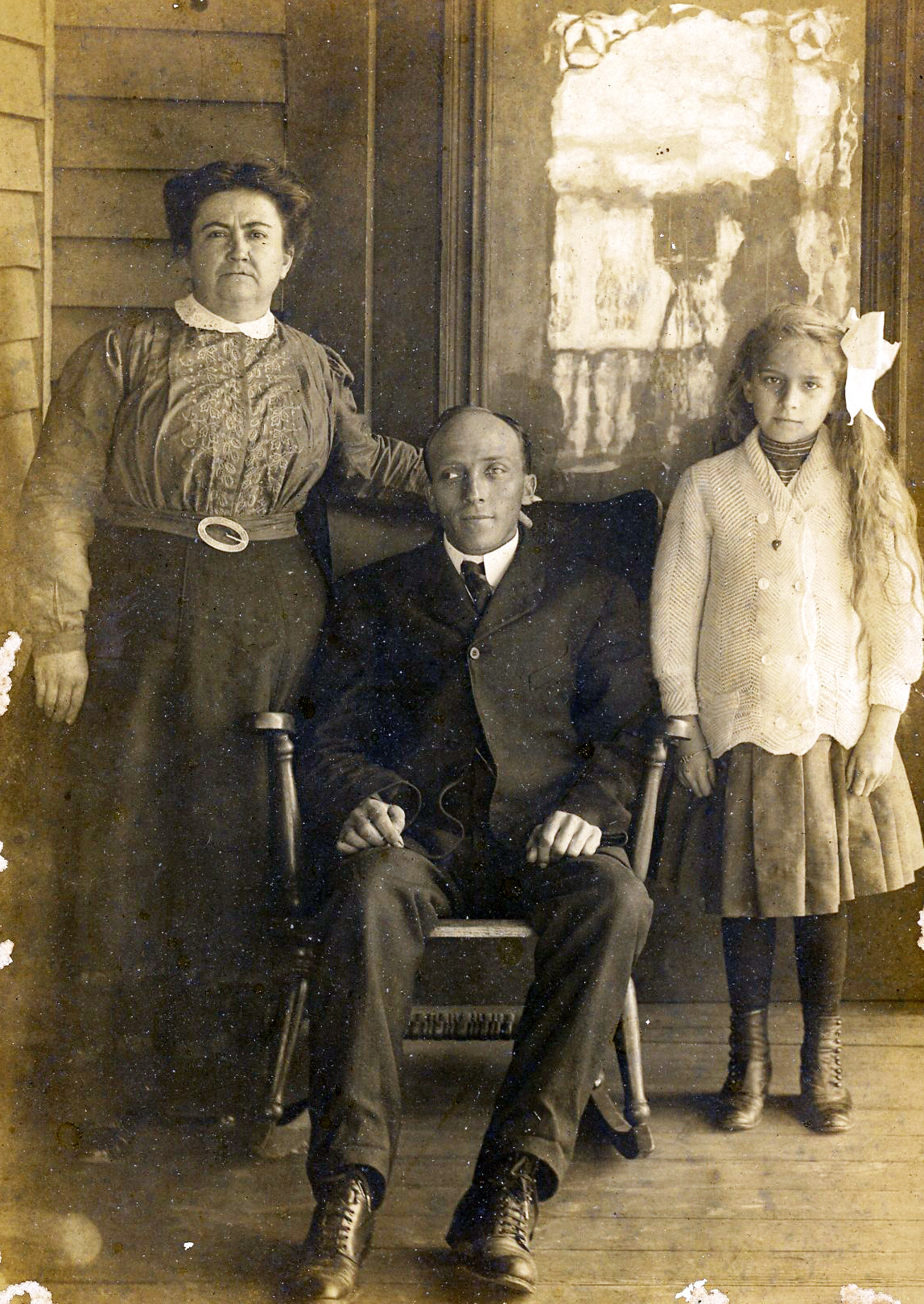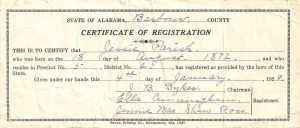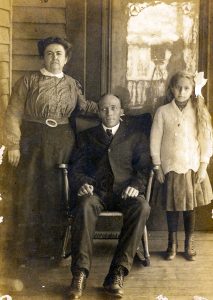
Jessie Gillis Parish: A Woman Voter of Barbour County, Alabama
- February 20th, 2017
- by specialcollections
- in Guest Contributors, Uncategorized, Unique or Annotated Works

In response to our recent posting of D. Pierson’s 1902 “Lifetime” voter registration certificate, our friend David E. Alsobrook sent us an image of his great grandmother’s 1929 certificate. As you can see, it was issued to Jessie Gillis Parish of Barbour County, Alabama, on January 3, 1929. Jessie Parish is one of the individuals discussed in Alsobrook’s forthcoming book Southside: Eufaula’s Cotton Mill Village and Its People, 1890-1945 (Mercer University Press). Following a path blazed by Dr. Wayne Flynt and others, this work will provide “an in-depth-examination of life, loss, and work in a self-contained Southern cotton mill village.” Such studies are necessary if we are to understand the legacies—cultural, political, and religious—left to us by “ordinary” Alabamians. We asked David to give us some background on Jessie Parish, who after all was a member of Alabama’s first generation of women voters. Here is what he said:

Although Jessie Parish’s voter registration certificate indicates that she was born on August 18, 1872, this date probably is incorrect. Her tombstone in Eufaula’s Fairview Cemetery records her date of birth as 1871. However, U.S. Census records for Barbour County reveal that she was born in 1869, in Glennville, Alabama, a few miles north of Eufaula. Her parents were Malcolm D. Gillis and Queen Ann Stephenson, who had three other children born between 1873 and 1881. Malcolm Gillis was a Confederate veteran and a cotton overseer in Glennville. Jessie married Thomas Mallie Parish in Eufaula in 1898. They had a daughter, Oma Parish Alsobrook (1899-1969), my grandmother. Jessie, Mallie, and Oma all worked at Donald Comer’s Cowikee Mills in Eufaula. The accompanying photo of the Parishes was taken around 1909. The Parishes were typical of the families who eked out a subsistence living in the cotton mills and lived in the village known as “Southside.” Jessie Parish probably was the first woman in her family to cast a ballot in Alabama.
Jessie Parish died in Eufaula on October 19, 1939. I only knew her from my grandmother’s occasional comments. However, her mother, Queen Anne Gillis, lived for many years afterward, and my grandmother remembers her well. I suspect that Jessie probably met her future husband, Thomas Mallie Parish, on the job in old Eufaula Cotton Mill, owned by Capt. John Tullis.
Jessie was a straight-laced Baptist her entire life, and her husband Mallie was a Methodist. At her funeral, the ministers from the two Southside “mission” churches officiated–Washington Street Methodist and Second Baptist. After Donald Comer acquired the “busted” Eufaula Cotton Mill in 1909 and changed its name to Cowikee Mill, Jessie and Mallie continued to work together there or possibly later at Cowikee Mill No. 3 in Eufaula. These are the only basic details I know involving Jessie Gillis Parish. She and Mallie were typical mill operatives–they worked hard all of their lives, and the debilitating nature of the work took a toll on their bodies, and their daughter Oma eventually joined them in the mill.
Like so many other mill families in Eufaula, the Parishes are rather invisible and anonymous in historical annals. As you’ll see in the pages of Southside, my grandmother Oma told me a lot about her father Mallie and the other Parishes, but for whatever reason, she seldom talked about her mother.
